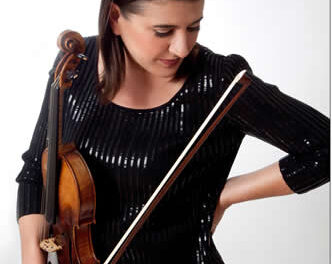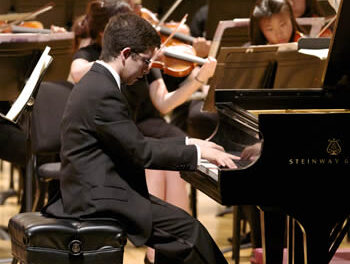For over a year now, the Isis in West Asheville has been presenting a jazz series every Sunday night, under the artistic direction of Dr. William Bares and Scott Woody, owner of the Isis. The diversity and quality of live jazz presented since December of 2012 has attracted many Western NC jazz fans to a central location notable for exceptional sound, atmosphere, and not one, but two performances, the first being in an intimate upstairs lounge from 6-8 p.m., and the second taking place on the main stage in a larger dinner theater setting downstairs from 8-11 p.m. I have been fortunate enough to perform at this location several times, and I will be the first to affirm that both stages of the venue have some of the best acoustics of any venue in the region. Listening as an audience member afforded an equally pleasurable aural experience.
The upstairs act for November 24 was a locally based quartet consisting of trumpet player Rich Wiley, guitarist Andy Page, his twin brother and bassist Zack Page, and drummer Russ Wilson. The quartet performed several original compositions by Wiley and Andy Page, many receiving their world premieres. The opening selection was a composition by Wiley entitled “Bloosky” that exhibited improvisation of the highest caliber. Andy Page gracefully glided across his fretboard with a sophisticated and subdued solo channeling Jim Hall’s solo on the Bill Evans composition “Interplay.” Wiley, a virtuoso of the trumpet known best for his powerhouse playing in larger ensembles, proved equally adept in a combo setting, His blues-tinged sequences on this first number were executed with subtle nuance and sensitivity. “Tranquility,” a beautiful ballad in a minor key by Andy Page, provided an introspective contrast to the blues infused compositions of the night, complete with a phrase acting as homage to Thelonious Monk’s seminal classic, “Round Midnight.” Equally impressive was Page’s composition, “Swing Master General,” a contrafact based on “The Nearness of You,” and dedicated to local master drummer Rick Dilling.
In fact, many of the compositions performed by this quartet were contrafacts, or newly composed melodies based on the changes of a frequently-performed jazz standard. “Pitter Patter” was one such example, based on John Coltrane’s classic composition “Giant Steps” with the added twist of a reduced tempo and R&B feel. It was a joy to hear the same harmonic progression of Coltrane’s classic transformed from a visceral sheet of sound to a relaxed and effortless-sounding improvisatory stroll. “Blues Guys” was another contrafact, a playful waltz based on Charlie Parker’s composition, “Blues for Alice,” a famous re-harmonization of the blues form. Zack Page took a masterfully-crafted solo on this number, alternating quotations of the melody with rapid arpeggios and blues runs over the entire range of his bass. This was just one of many opportunities the audience was granted to hear the most-in-demand bassist in Western NC step out of his role as a consummate accompanist and into the spotlight as a soloist of the highest aptitude. Equally notable was drummer Russ Wilson, who, like Wiley, is best known as a powerhouse performer who can swing a big band with relentless precision. Armed with nothing more than a snare drum and hi-hat, Wilson showcased his legendary rhythmic acuity while tastefully providing a myriad of colors from his minimal setup.
The second act of the evening, the Jean Calvert Quartet, opened without the singer. Pianist Michael Jefry Stevens was joined by bassist Zack Page from the previous group and drummer Justin Watt. This trio started with a spritely rendition of “I Mean You,” by Thelonious Monk. Stevens, a brilliant pianist and composer, incorporated several Monk riffs with his own unique pianistic style which blends everything from the Memphis blues to Bela Bartók’s harmonic language. Following this exciting performance, Calvert graced the stage and sang Duke Ellington’s “I’m Just a Lucky So and So.” It was immediately apparent that the audience was in for a treat, as Calvert sang the tune with a charismatic combination of casual elegance and vocal precision. Calvert has done her homework on the great vocalists of the jazz canon, and when this listener closed his eyes he could hear an uncanny resemblance in Calvert’s voice to the late greats Ella Fitzgerald and Peggy Lee. It was no accident when Calvert frequently used Fitzgerald’s trademark descending chromatic tetrachord as a lick and emulated her legendary melismas with effortless accuracy. Calvert also displayed her talent as a composer, performing “I Got a Thing For You,” which received the East Coast Songwriting Competition award for best R&B number. The composition also provided Calvert with an opportunity to showcase her sultry lower register. Keeping with the R&B tradition, Calvert also sang Ray Charles’ “Hallelujah How I Love Her So” and a bluesy rendition of Bobby Timmon’s “Moanin,” which featured Watt’s impeccable technique as he flawlessly replicated Art Blakey’s swinging hard bop shuffle behind Calvert’s seductive voice.
The highlight of the evening, however, was a powerful rendition by Stevens, Page, and Watt of the Bill Evans composition “Nardis.” The first two A sections of the work were played by Stevens in a rubato manner before he burst into a colorful solo of captivating and mysterious Phrygian melodic lines and florid arpeggios, passionately accentuated by the dynamic interplay between Page and Watt. In his second chorus, Stevens proceeded to recapitulate the declamatory opening two-note motive of the composition through a series of brilliant variations, recycling the motive over the atmospheric modal framework. At the end of the solos, all three performers returned back to the rubato feel of the opening, before collectively generating a decrescendo which concluded with a breathtaking silence. This was jazz at its finest, showcasing the dynamic aesthetic and improvisatory spirit of the music.












